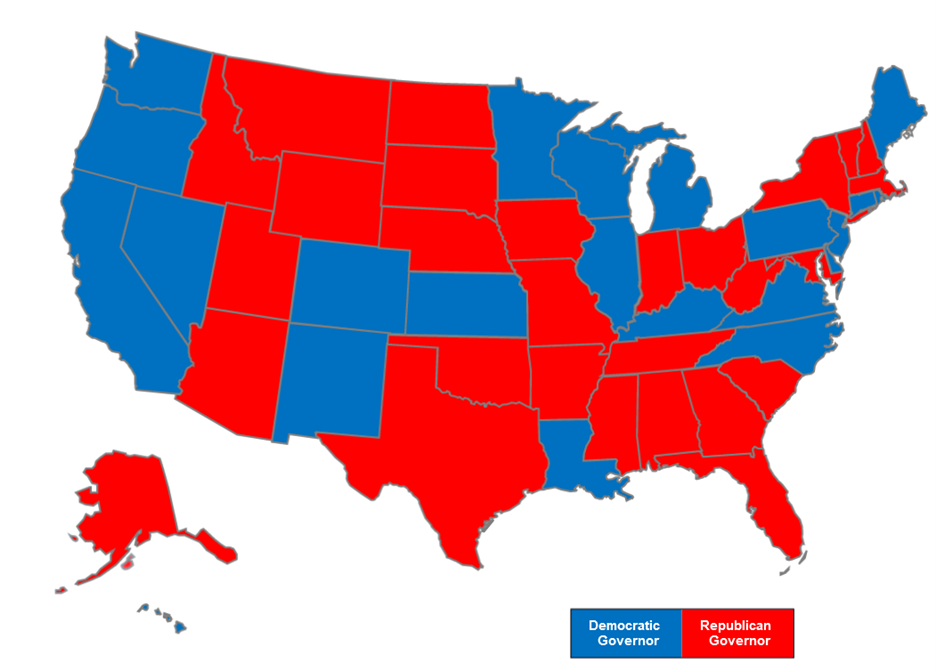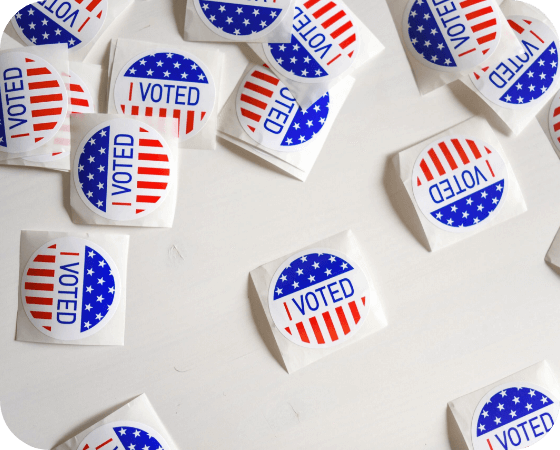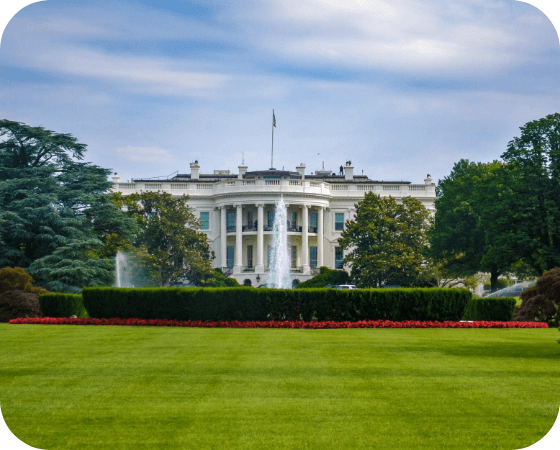The 2022 midterms aren’t just about Congress. 36 states will be holding gubernatorial elections, and the consequences will not just determine state-level policies but also inform future political players on the federal level for presidential races.. At the moment, 27 states have Republican governors, while 23 have Democratic governors.

The 2021 Races
One indicator of the 2022 midterms will be three gubernatorial races scheduled in fall 2021. Both New Jersey and Virginia have held their gubernatorial elections off-year to avoid being overshadowed by federal elections, while California’s election is part of a recall effort.
- In New Jersey, incumbent Democratic Governor Phil Murphy is seeking a second term. He will face Republican nominee and current State Assemblyman Jack Ciattarelli. The state gubernatorial election will take place on November 2, 2021.
- In Virginia, former Governor Terry McAuliffe is seeking a second term in a November 2, 2021, where he will face off against Republican nominee Glenn Youngkin. Unlike other state governors, Virginia governors are not allowed to serve consecutive terms, which is why the current Democratic Governor Ralph Northam is not seeking reelection.
- In California, incumbent Democratic Governor Gavin Newsom faces a recall election on September 14, 2021. 46 candidates have been deemed qualified to appear on the ballot, including 9 Democrats and 23 Republicans.
However, the 2021 gubernatorial races are unlikely to serve as a bellwether for the 2022 midterms. All three states are solidly Democratic, with Democrats currently serving as governor, attorney general, and secretary of state. Additionally, the state legislatures of Virginia, New Jersey, and California all have Democratic majorities.
The 2022 Outlook
Of the 36 states in the mix for 2022, 20 governorships are held by Republicans, while 18 are held by Democrats. Below is a chart of all states with 2022 gubernatorial elections, their likely outcome according to the Cook Political Report, and a comparison with 2020 presidential election results.
| State | Incumbent | Party | Projection | 2020 Presidential Margin |
| Alabama | Kay Ivey | R | Solid R | Trump (+25.5) |
| Alaska | Mike Dunleavy | R | Solid R | Trump (+10.1) |
| Arizona | Doug Ducey* | R | Toss-up | Biden (+0.3) |
| Arkansas | Asa Hutchinson* | D | Solid R | Trump (+27.6) |
| California | Gavin Newsom† | D | Likely D | Biden (+29.5) |
| Colorado | Jared Polis | D | Solid D | Biden (+13.5) |
| Connecticut | Ned Lamont | D | Solid D | Biden (+20) |
| Florida | Ron DeSantis | R | Lean R | Trump (+3.4) |
| Georgia | Brian Kemp | R | Lean R | Biden (+0.2) |
| Hawaii | David Ige* | D | Solid D | Biden (+29.5) |
| Idaho | Brad Little | R | Solid R | Trump (+30.7) |
| Illinois | J.B. Pritzker | D | Solid D | Biden (+16.9) |
| Iowa | Kim Reynolds | R | Likely R | Trump (+8.2) |
| Kansas | Laura Kelly | D | Toss-up | Trump (+14.6) |
| Maine | Janet Mills | D | Likely D | Biden (+9.1) |
| Maryland | Larry Hogan* | R | Lean D | Biden (+33.2) |
| Massachusetts | Charlie Baker | R | Solid R | Biden (+33.5) |
| Michigan | Gretchen Witmer | D | Lean D | Biden (+2.4) |
| Minnesota | Tim Walz | D | Likely D | Biden (+7.1) |
| Nebraska | Pete Ricketts* | R | Solid R | Trump (+19.1) |
| Nevada | Steve Sisolak | D | Likely D | Biden (+2.4) |
| New Hampshire | Chris Sununu | R | Likely R | Biden (+7.4) |
| New Mexico | Michelle Lujan Grisham | D | Solid D | Biden (+10.8) |
| New York | Andrew Cuomo | D | Solid D | Biden (+23.1) |
| Ohio | Mike DeWine | R | Likely R | Trump (+8) |
| Oklahoma | Kevin Stitt | R | Solid R | Trump (+33.1) |
| Oregon | Kate Brown | D | Likely D | Biden (+16.1) |
| Pennsylvania | Tom Wolf* | D | Toss-up | Biden (+1.2) |
| Rhode Island | Daniel McKee | D | Solid D | Biden (+23.1) |
| South Carolina | Henry McMaster | R | Solid R | Trump (+11.7) |
| South Dakota | Kristi Noem | R | Solid R | Trump (+26.2) |
| Tennessee | Bill Lee | R | Solid R | Trump (+23.2) |
| Texas | Greg Abbott | R | Likely R | Trump (+5.8) |
| Vermont | Phil Scott | R | Solid R | Biden (+35.4) |
| Wisconsin | Tony Evers | D | Lean D | Biden (+0.6) |
| Wyoming | Mark Gordon | R | Solid R | Trump (+43.3) |
*Not eligible for reelection due to term limits
†Dependent on results of 2021 recall election
Democrats face an uphill battle in the 2022 gubernatorial races. In 16 of the 19 midterm elections held since World War II, the party of the president lost bids for governorship. However, 2022 is unlikely to see a lot of turnovers in the governors’ mansions due to the fact that all but six races feature incumbents, who generally face an advantage in retaining their seats. Nonetheless, conditions could change for all gubernatorial candidates, depending on the popularity of President Joe Biden, the state of the economy, public health, and countless other measures.





